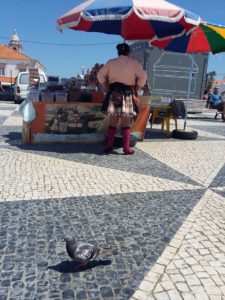Wednesday 16th – Wednesday 23rd May 2018
Nazaré is a seaside resort on Portugal’s Silver Coast (Costa da Prata). It has its own wide sandy beach which stretches between the new harbour/marina in the south and the cliffs to the north, where the lighthouse stands.
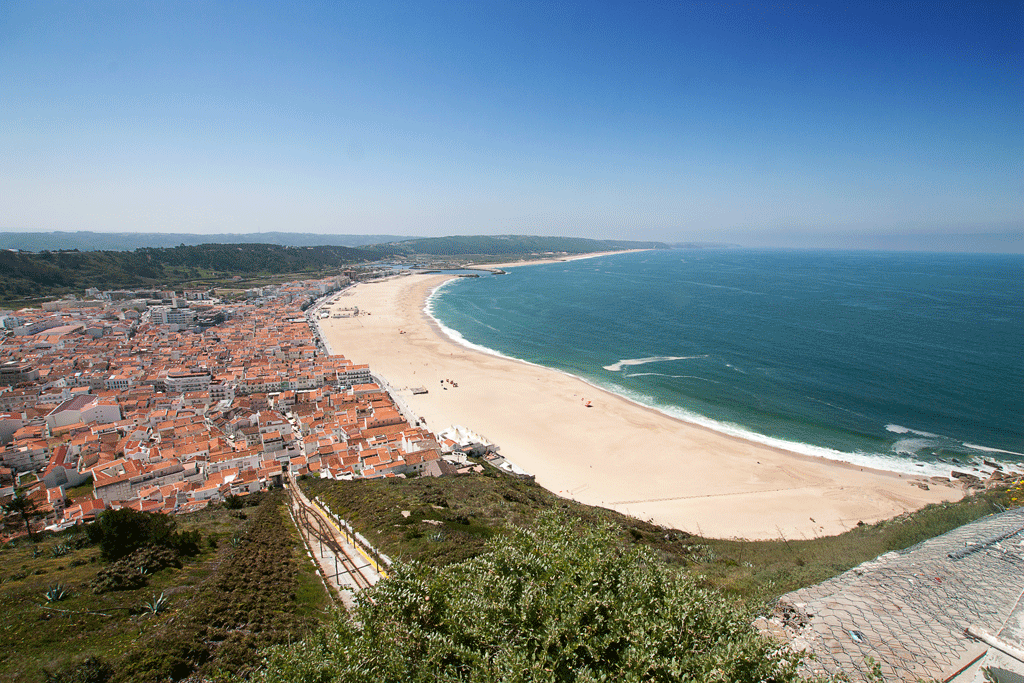
A few of the old historic fishing boats are still on view at the beach, (exposição de Barcos).
The day before we left, the beach was in a state of transformation. Nazaré will play host to:
- The Euro Beach Soccer League 2018 between July 6th and 8th, as well as,
- Nazaré Beach Soccer Cup 2018 between May 25th and 27th
- Euro Winners Cup and Women’s Euro Winners 2018 between May 28th and June 3rd
- Nazaré Beach Handball Tournament June between 22nd and 24th June. (International)
Another popular event held here is the Nazaré Folk Festival. This year the XIX National Festival of folk dances and songs will take place on July 23rd July.
The town has developed to cater for the large number of tourists who now visit and many shops, stalls and restaurants line the seafront as well as some of the extremely narrow streets leading to the sea.
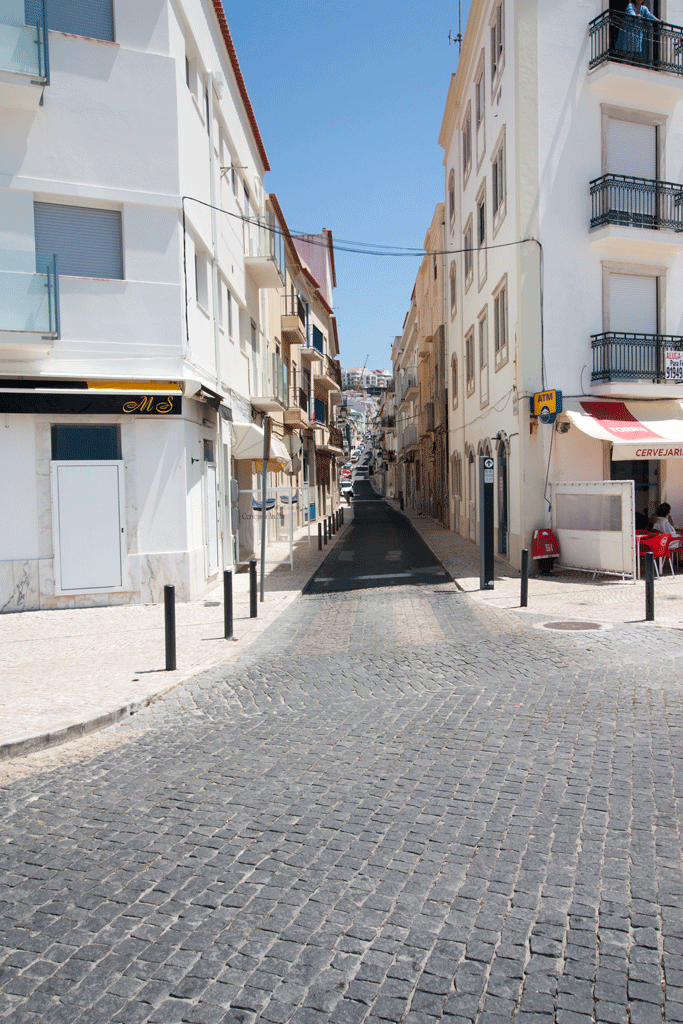
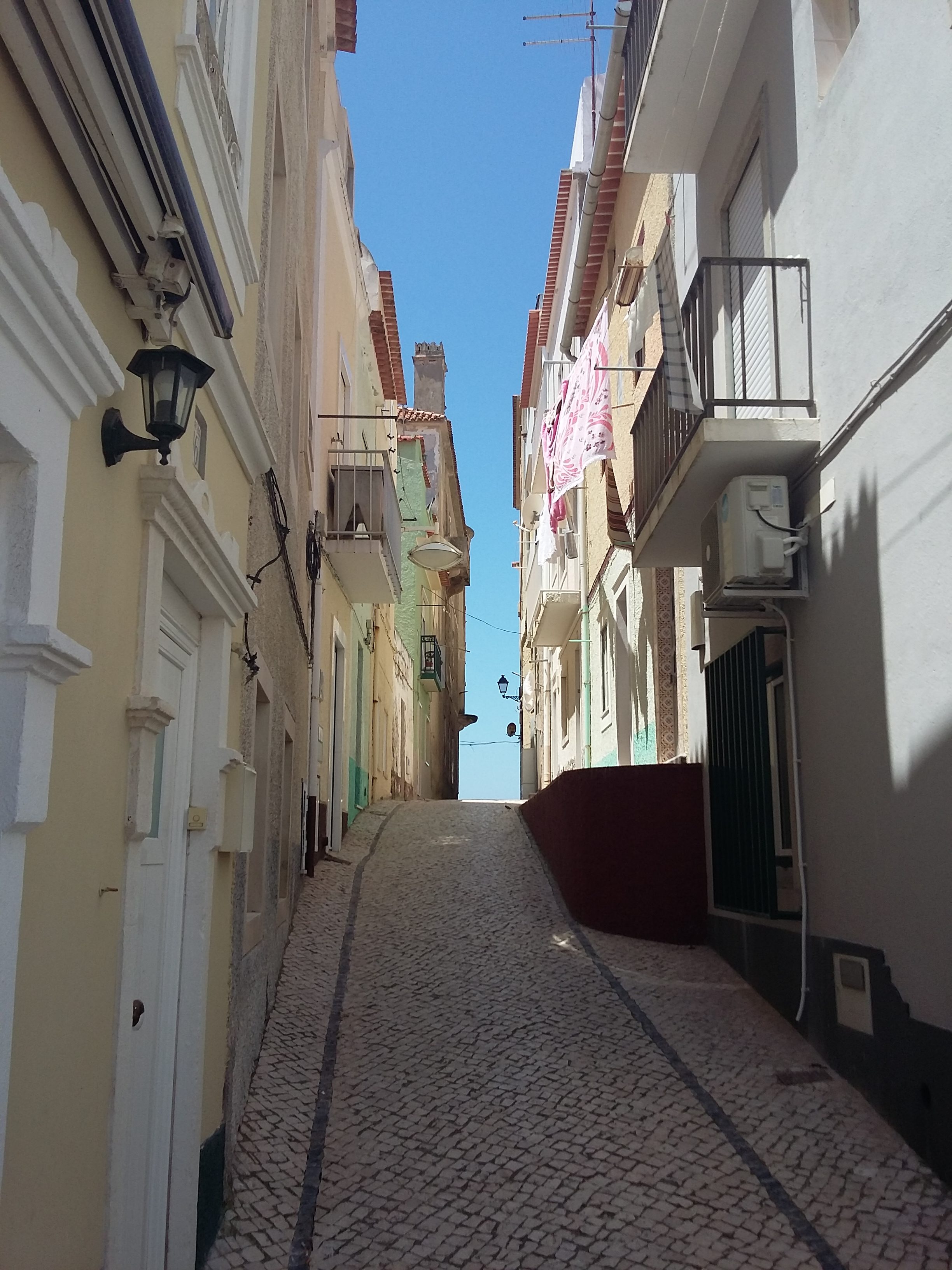
Many of the old buildings are being refurbished into colourful new apartments, hotels or restaurants and the road closest to the beach, the Avenida da Republica, has been modernised to cope with the increased traffic.
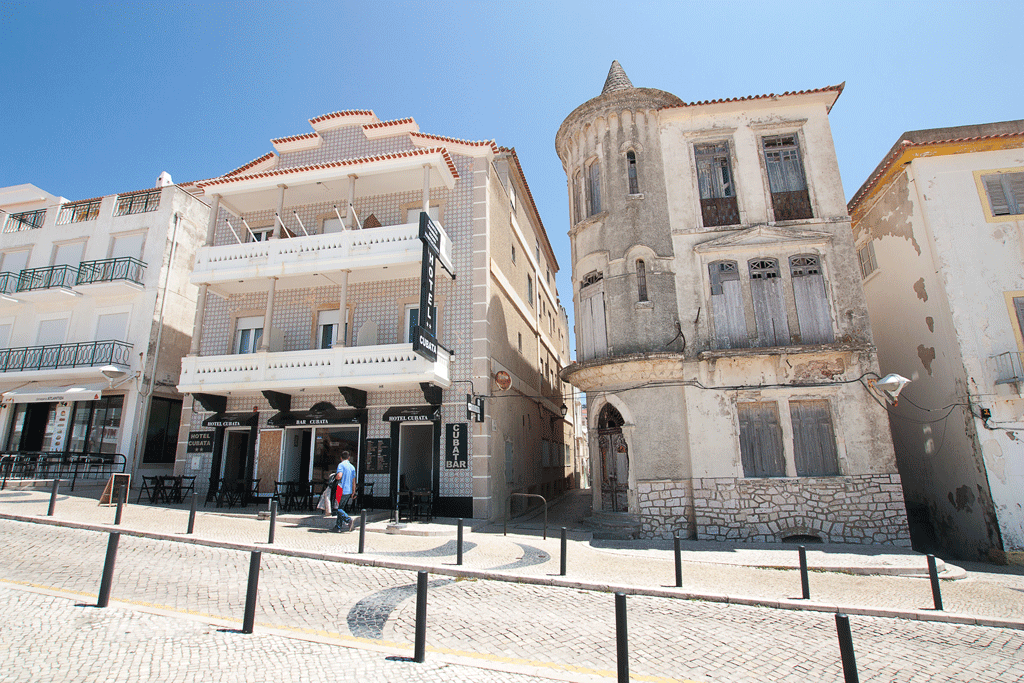
Despite the towns increased popularity, in the back streets of Nazaré there is evidence of the Old Portuguese way of life continuing and particularly on the weekends, the town comes alive with locals enjoying an evening out or making the most of the sandy beach.
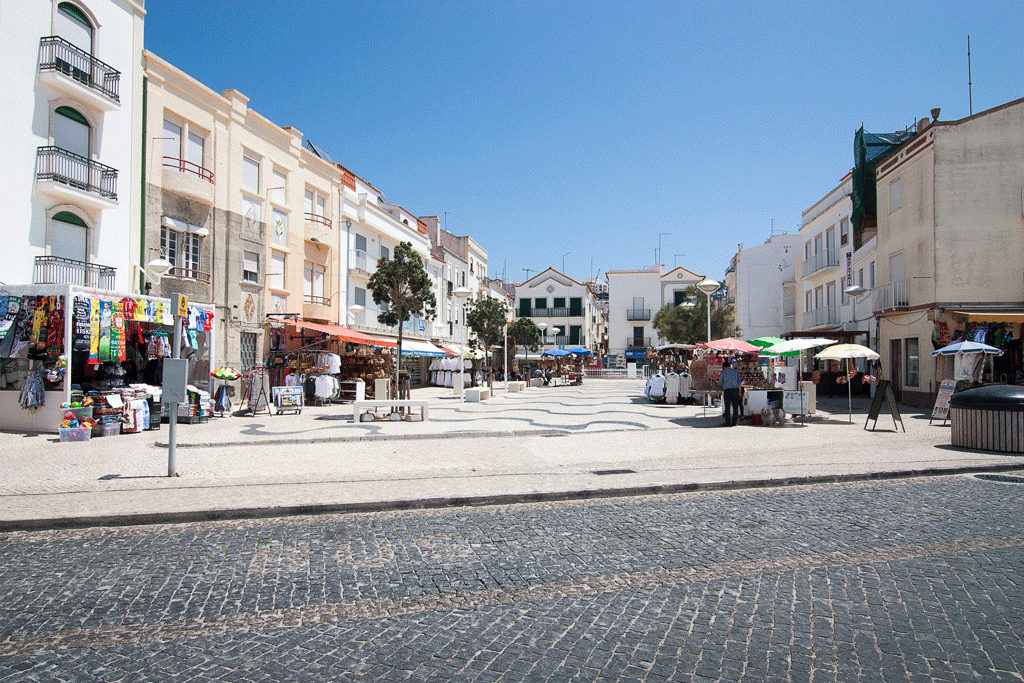
Many of the local women continue to wear the traditional dress with several petticoats.
The ensemble is often completed with house slippers, an apron, a woollen cape, head scarf and glitzy jewellery. We observed many of the older generation leaving church wearing this customary outfit, as well as the street sellers also donning this attire for the benefit of the tourists.
High above the cliffs is the neighbourhoods of Sítio; a funicular, Ascensor da Nazaré, links the Praia area to Sítio and is a popular tourist attraction whilst visiting the area.
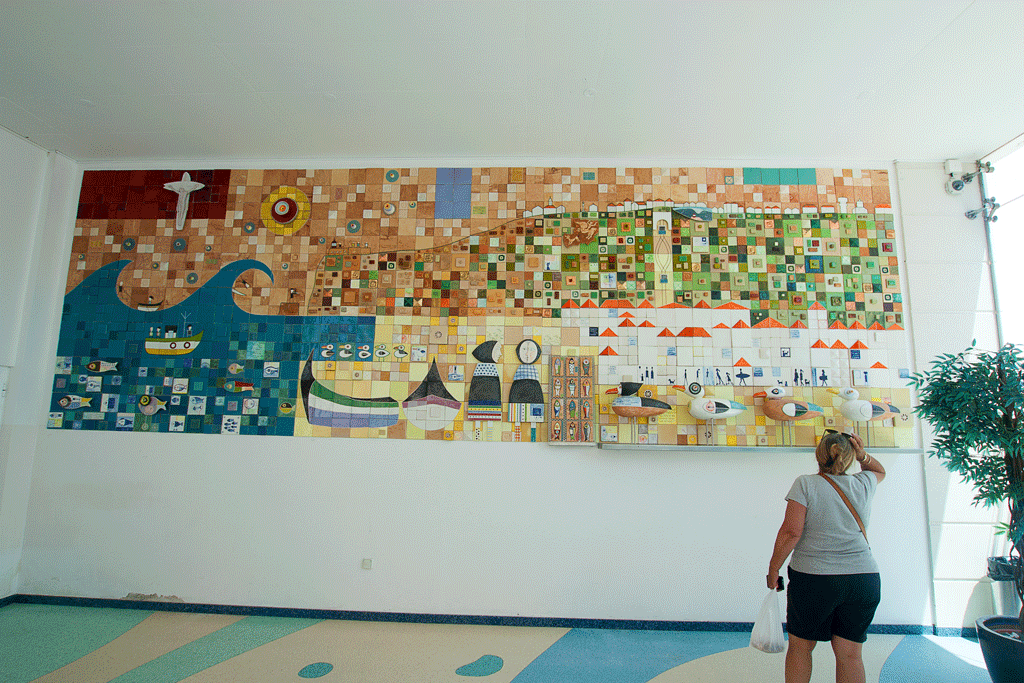
An adulto ida e volta (return ticket) cost €2, 90. The journey climbs 318 metres with a 42% slope and the views ascending or descending are glorious.
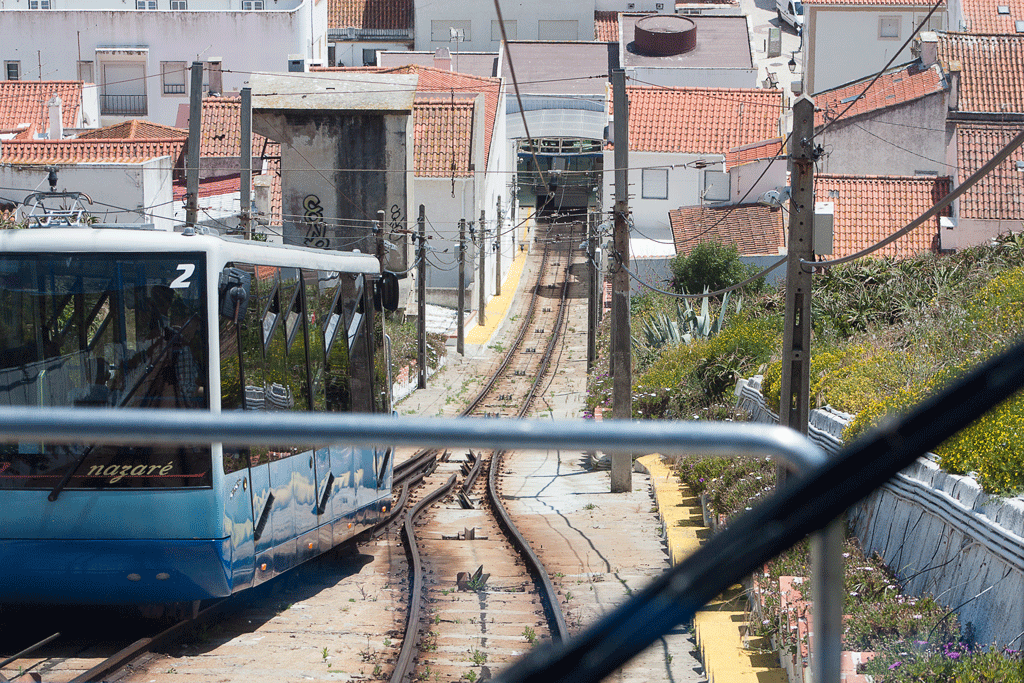
We drove to Sítio and parked close to the local bull ring and made our way to the main square following the coastal wall, taking in the spectacular views of the Praia, Nazaré and the Atlantic Ocean.
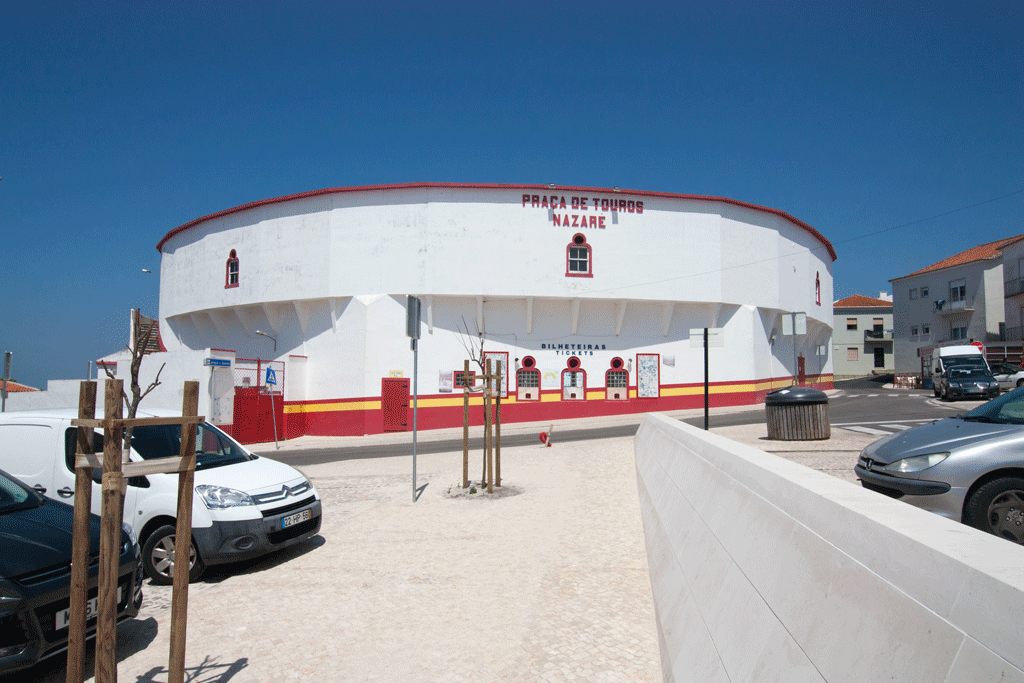
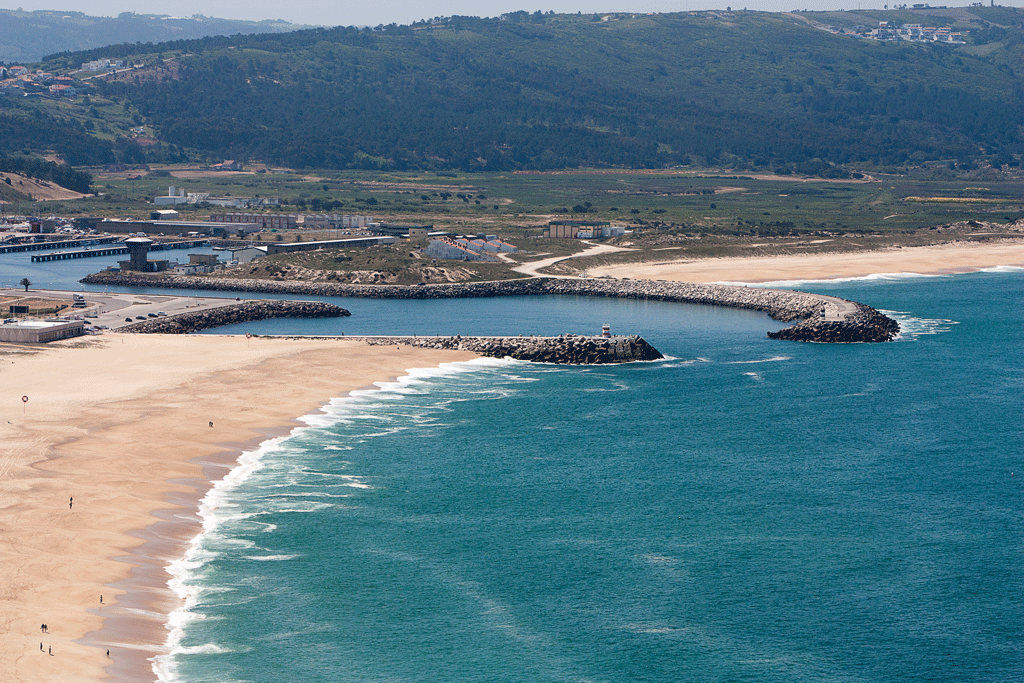
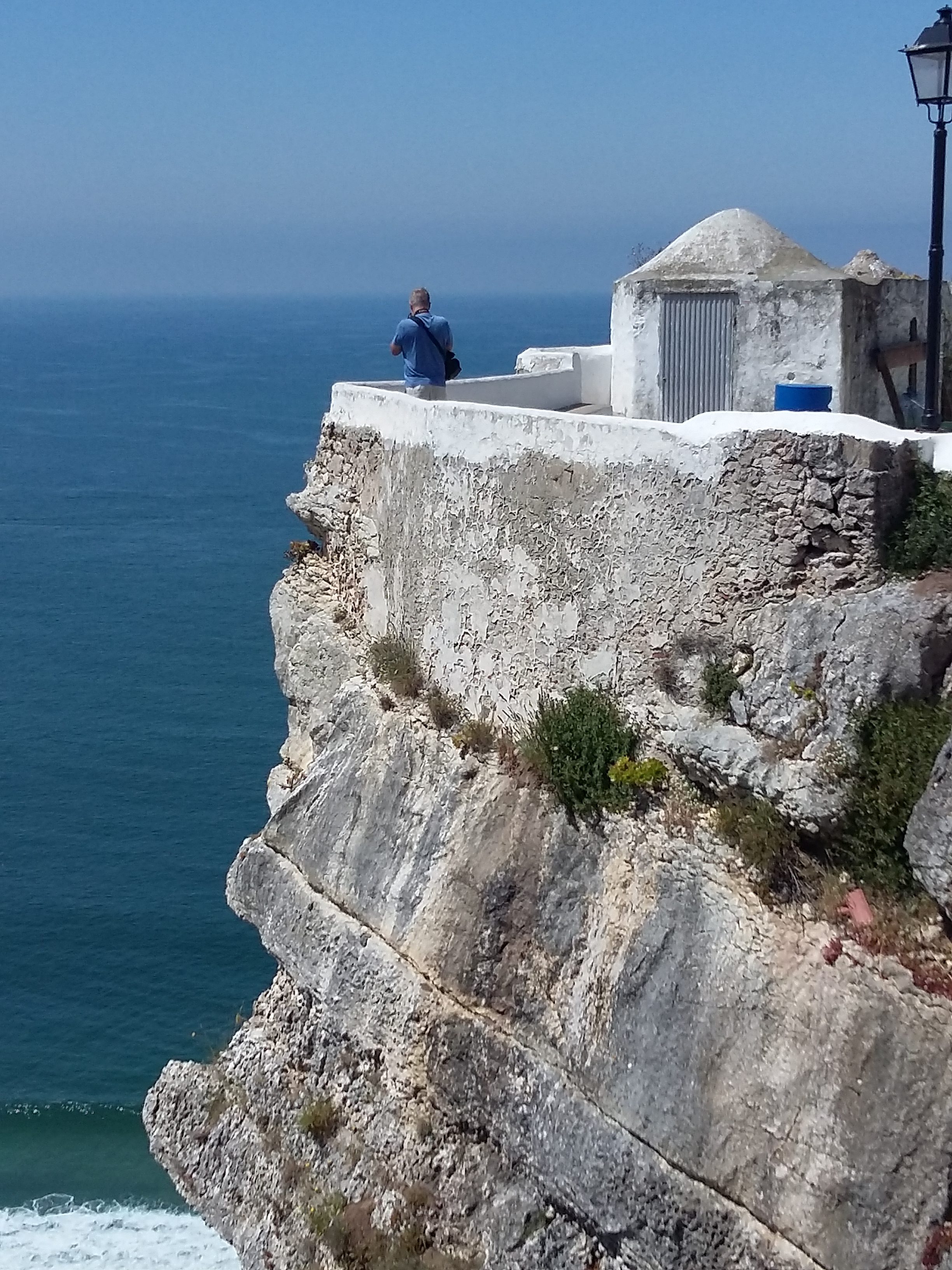
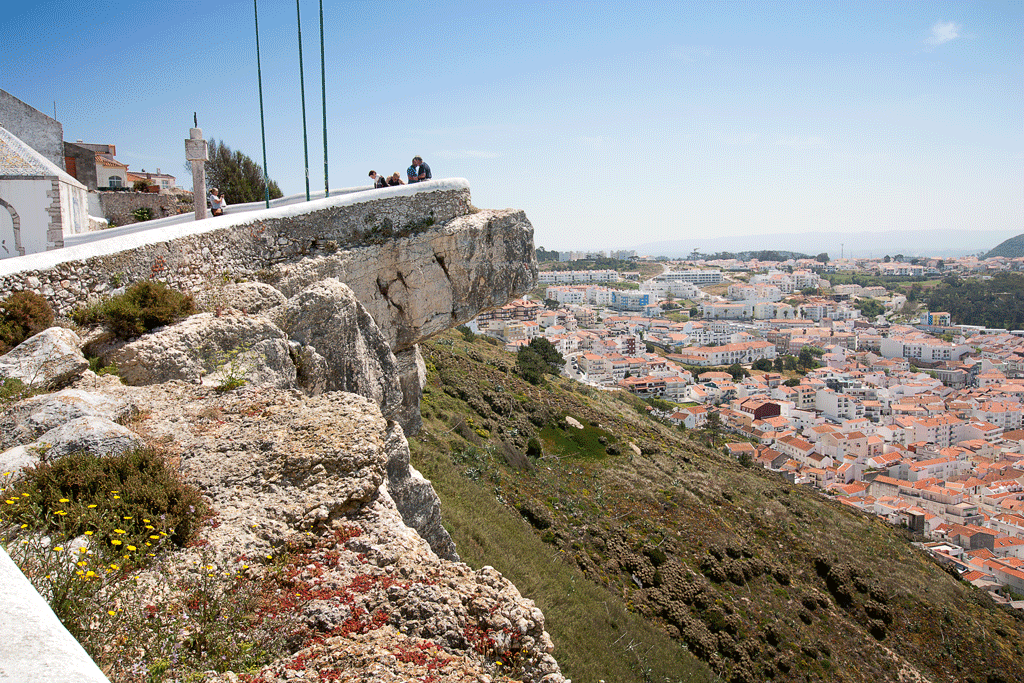
It is possible to drive into Sítio and park closer to the main square, as well as driving down to the headland but maybe not quite so easy during the popular months of the year.
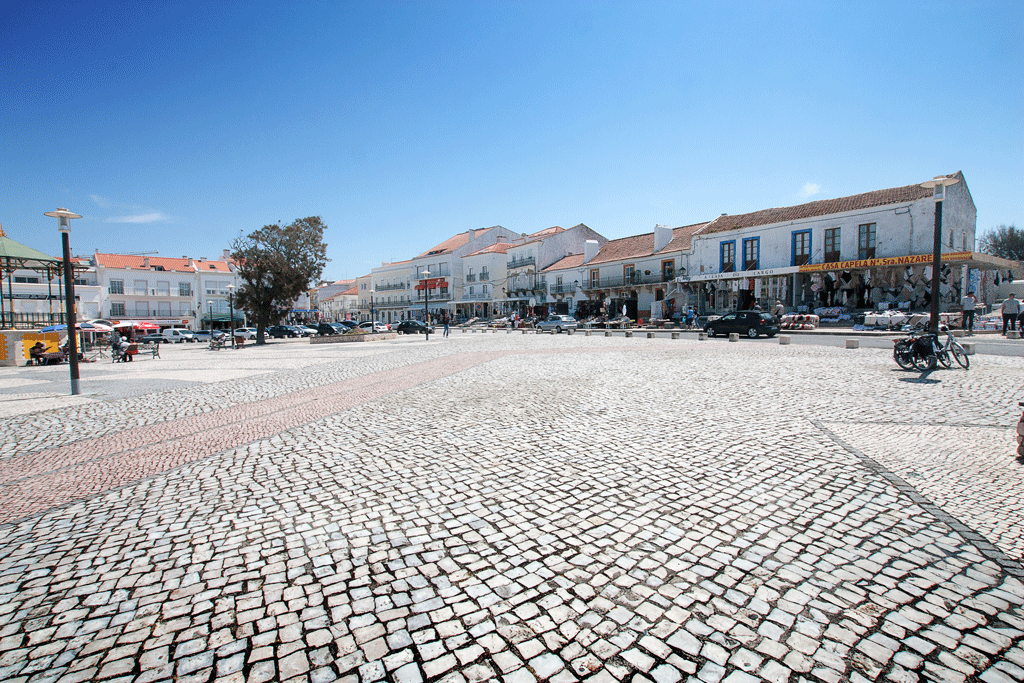
Our route led us to the main focal point of Sítio, where shops selling all things ‘Portuguese’ surrounded the central square, as did the local vendors selling nuts and dried fruit.
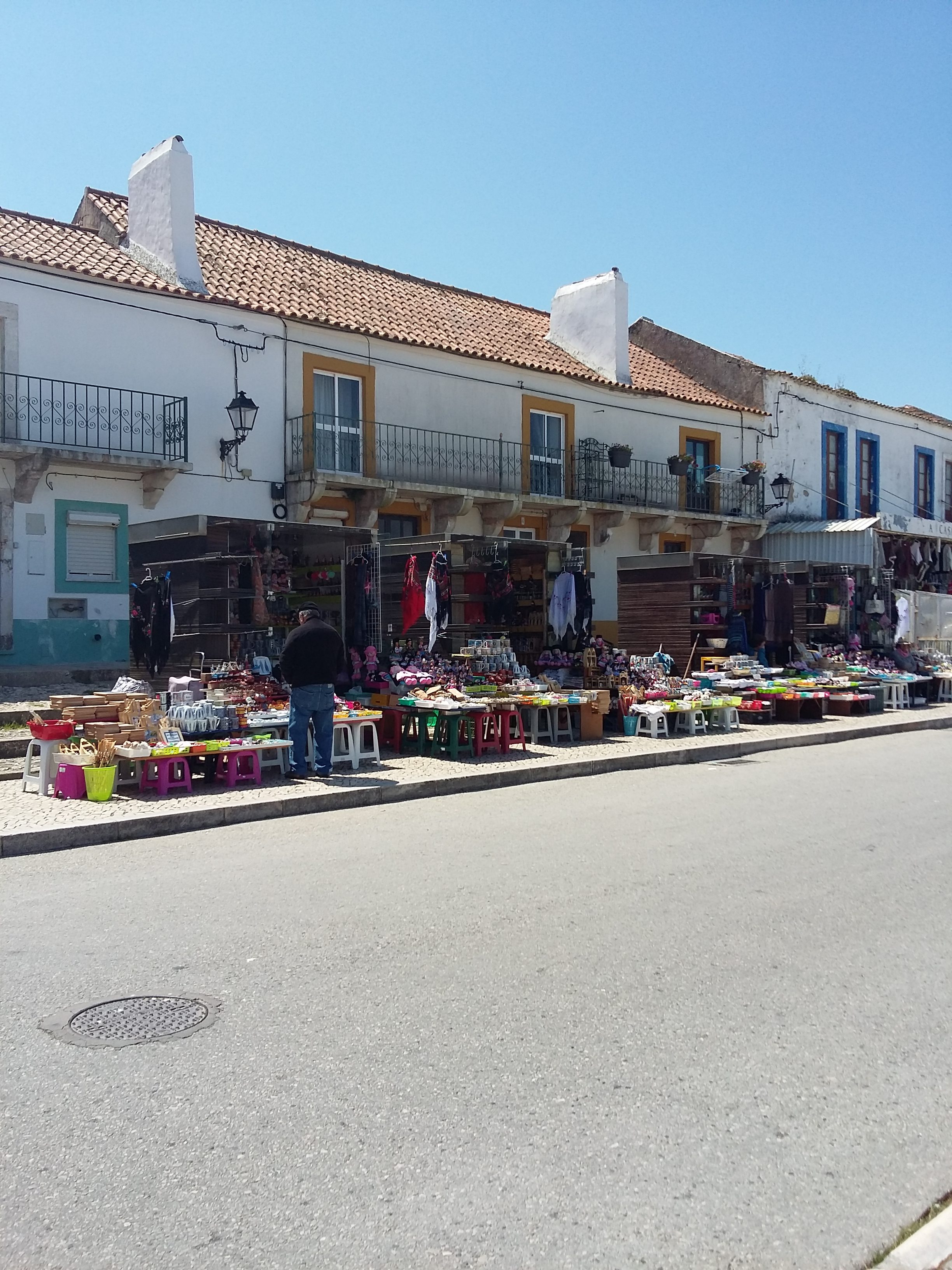
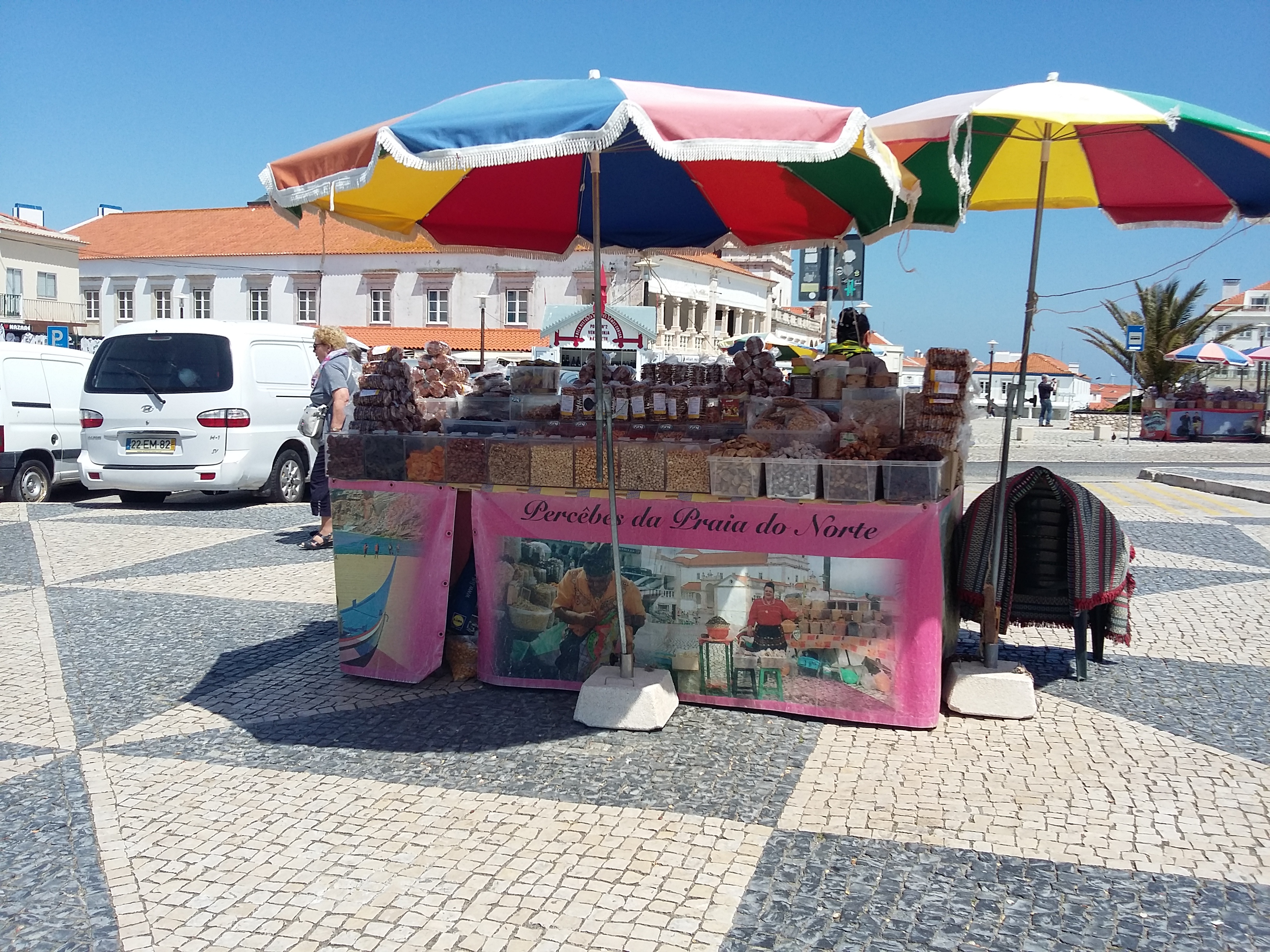
The ornate hilltop church of Nossa Senhora da Nazaré and the tiny 12th century chapel of Ermida da Memória can also be found here.
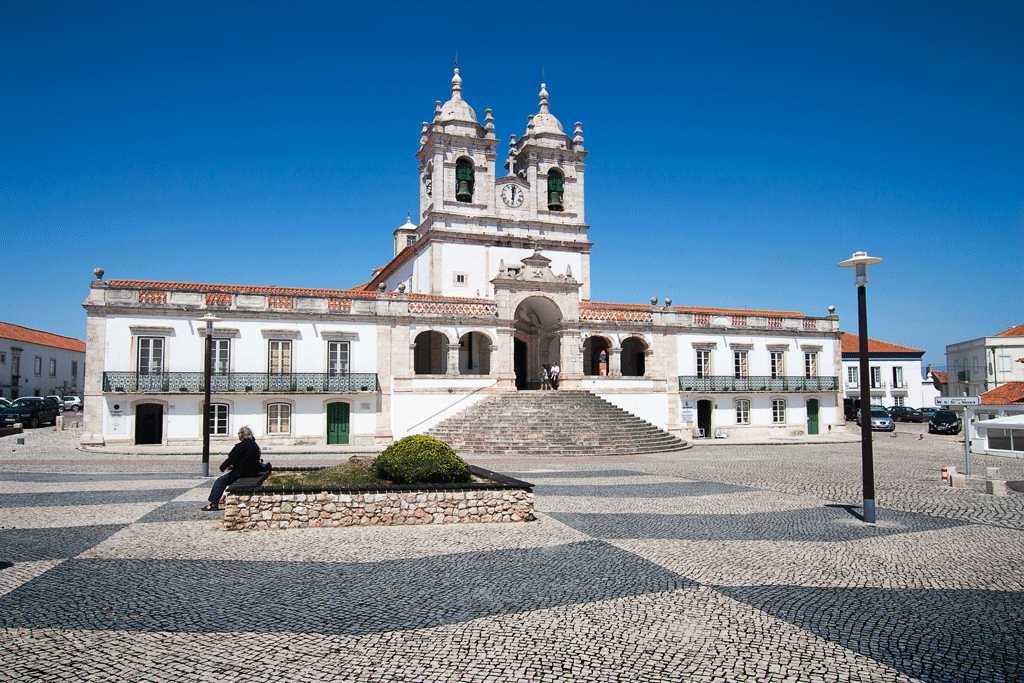
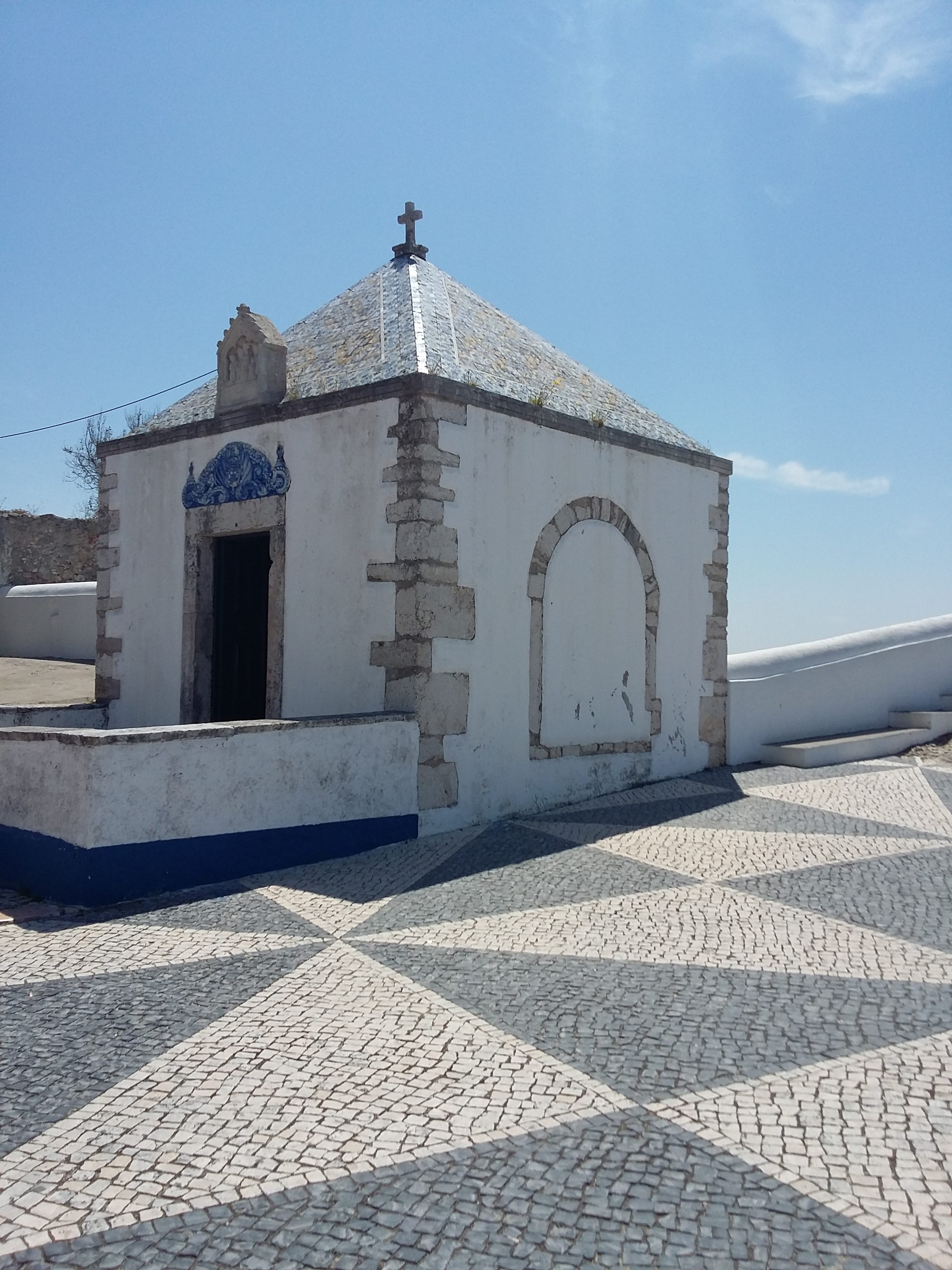
On leaving the main square we headed out down to the headland with the lighthouse to see what has now become one of main attractions of Nazaré.
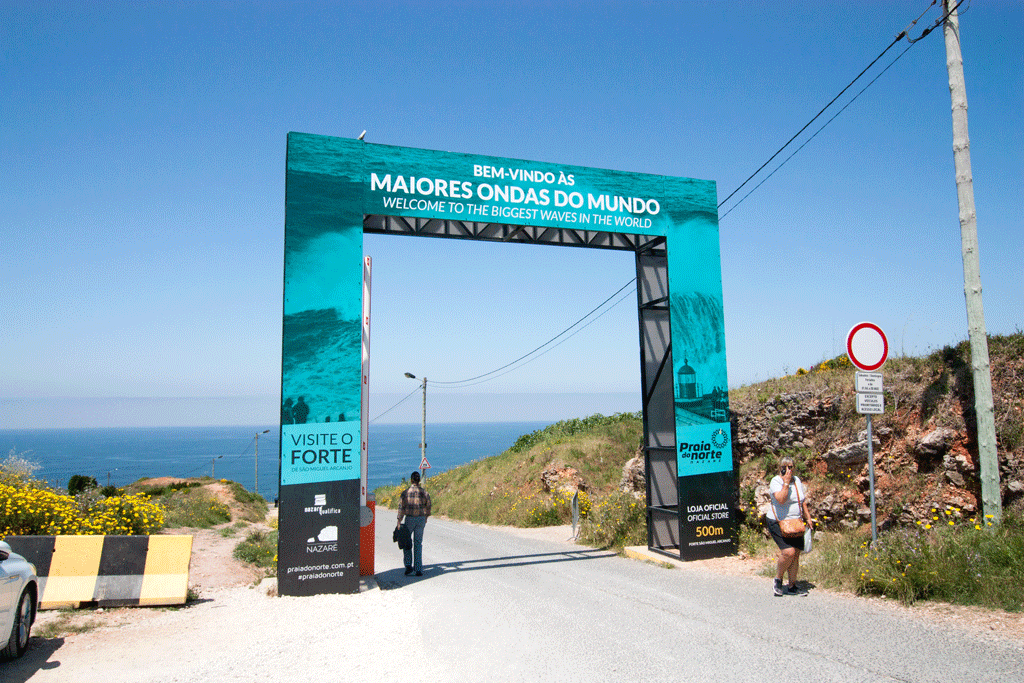
Although at the time of year we visited, we were not likely to witness the giant waves, which attract surfers from all over the world. The high breaking waves are caused by the Nazaré Canyon.
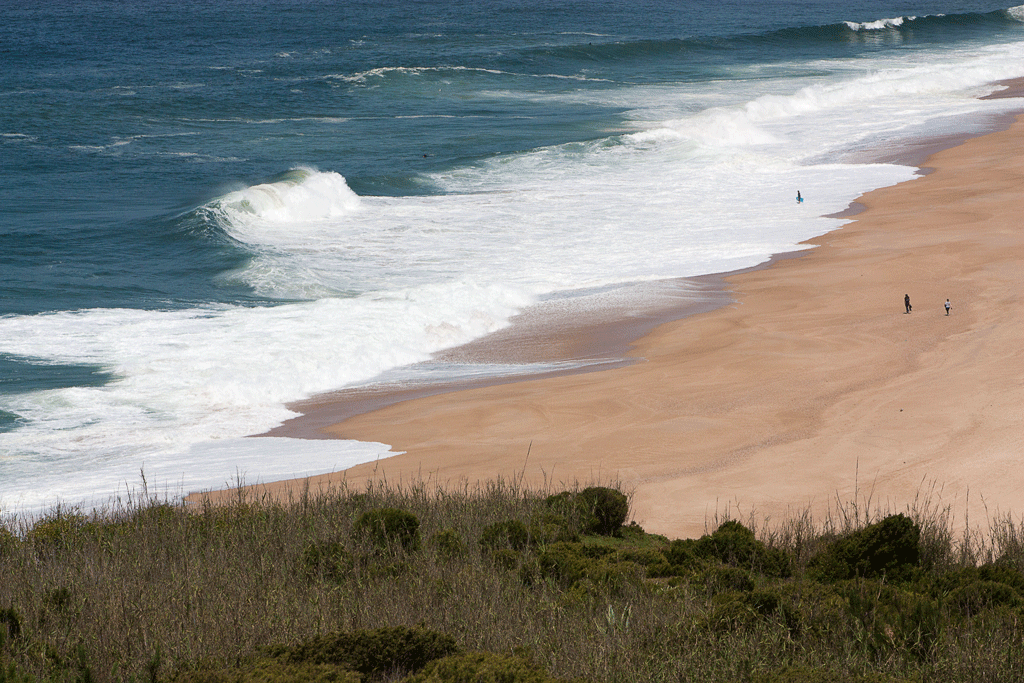
During the Big Waves season, generally October to March, the giant waves happen on Praia do Norte, the beach north of the headland and the best place to observe all the action is at the point next to the lighthouse.
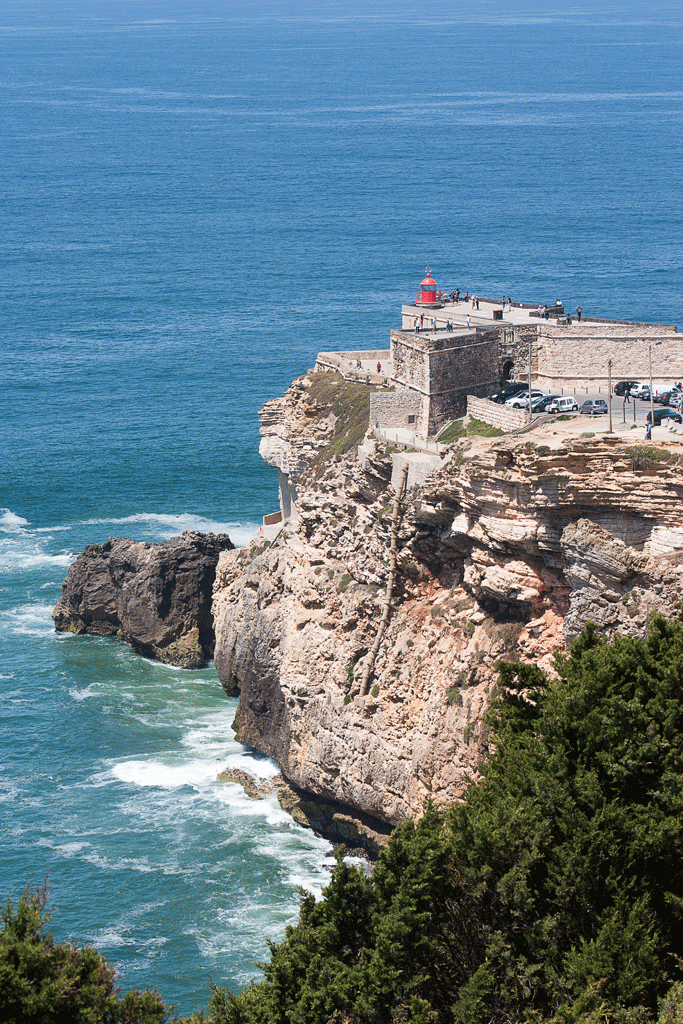
An annual event now takes place here as part of the WSL Big Wave Tour (World Surf League). It lasts only one day and has no fixed date, as it depends on the predictions on the state of the sea.
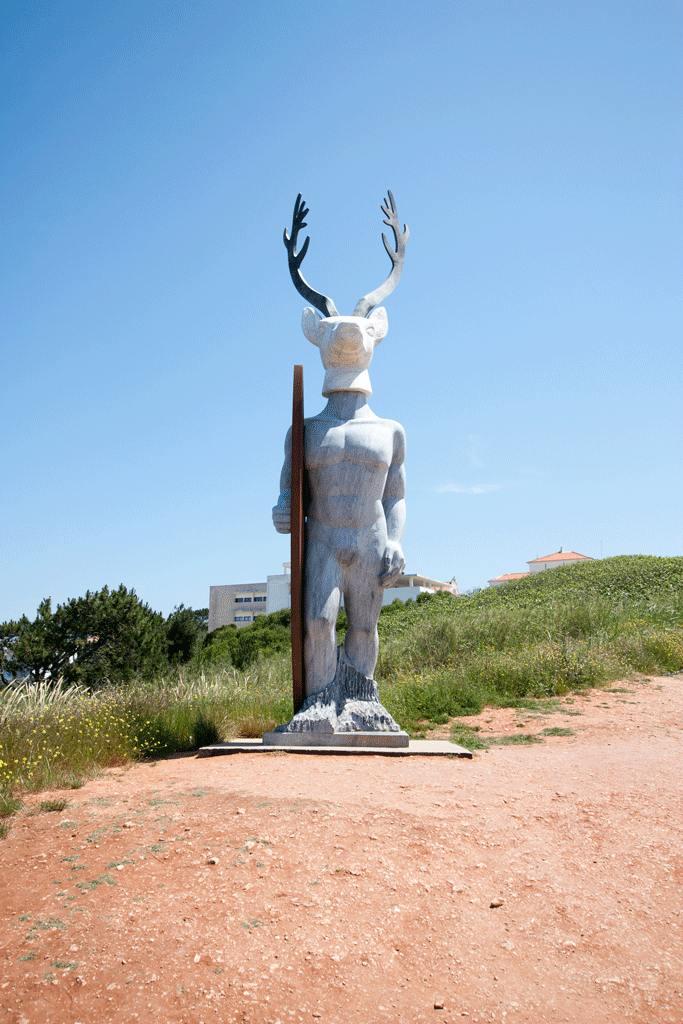
This intriguing statue commemorates the Legend of Nazaré, a 12th-century tale of a nobleman who was hunting a deer from horseback along the sheer precipice over the beach.
It is possible to drive to Praia do Norte but parking is very limited. The beach is incredibly wide and long and it isn’t the easiest beach to access. It is a popular spot for surfers and it was quite busy when we visited, despite the waves not quite matching the giant waves. It doesn’t have any amenities and wasn’t the cleanest beach we have found.
As you can imagine there are numerous restaurants to tempt you in Nazaré and Sítio and many offer a variety of seafood dishes.
One of our favourite traditional Portuguese dishes is cataplana de marisco.
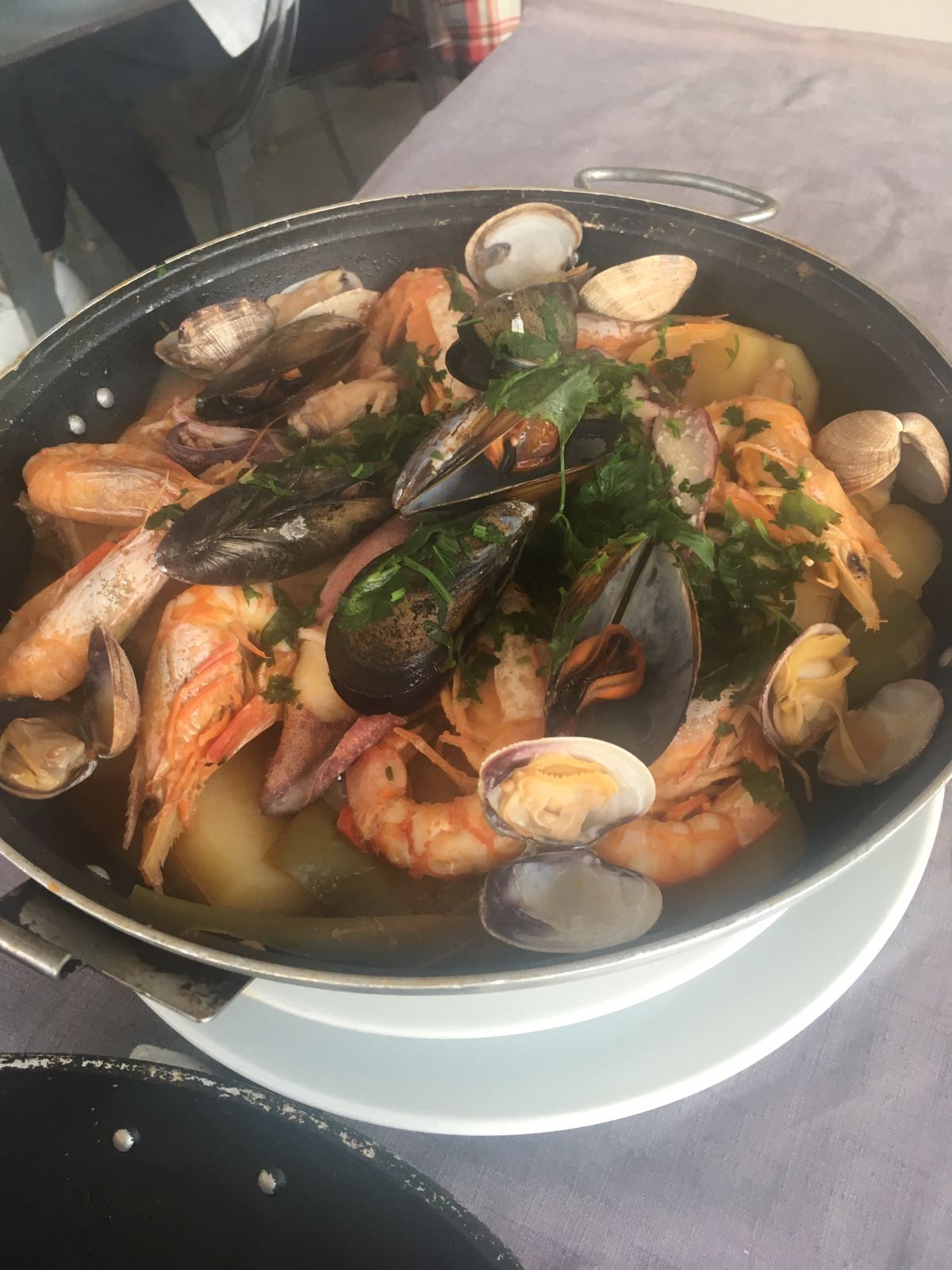
Cataplana refers to the clam shaped item of cookware used to prepare this dish. It is the most delicious concoction of Mediterranean flavours, with clams, prawns and fish cooked in an aromatic stew base of tomatoes and peppers. What’s not to like??

